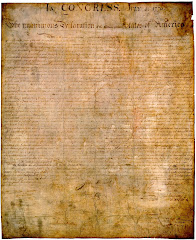Traducing Solzhenitsyn
by Daniel J. Mahoney
Copyright (c) 2004 First Things (August/September 2004).
Aleksandr Solzhenitsyn is one of the great souls of the age. He is also among its most maligned and misunderstood figures. It is hard to think of another prominent writer whose thought and character have been subjected to as many willful distortions and vilifications over the past thirty years.
Things were not always so. Until the early 1970s Solzhenitsyn was widely admired in the West as a dissident and as a critic of Communist totalitarianism. On the left he was appreciated as a defender of human rights against an undeniably illiberal and autocratic regime. But with the publication of works such as August1914 (1972), the Letter to the Soviet Leaders, and the cultural-spiritual anthology From Under the Rubble (both published in the West in 1974), it became impossible to claim Solzhenitsyn as a champion of left-liberal secularism. He continued to be, of course, a ferocious critic of the ideological “lie” and a tenacious defender of fundamental human liberties. But this antitotalitarian writer clearly did not believe that a free Russia should become a slavish imitator of the secular, postmodern West. It became increasingly clear that he was both an old-fashioned patriot and a committed Christian—but here also he was perplexing to some, because he adamantly rejected “blood and soil” nationalism, expressed no desire to return to the Tsarist past, and asked for no special privileges for Christianity in a post-totalitarian Russia.
Some of his critics soon reasoned that if Solzhenitsyn was not a conventional liberal, then he must be an enemy of liberty. The legend grew that he was, at best, a “Slavophile” and a romantic critic of decadent Western political institutions, and that he was, at worst, an authoritarian and even, perhaps, an anti-Semite and a theocrat. Even those Western critics who admired Solzhenitsyn’s courage in confronting the Communist behemoth and who drew upon his dissections of ideological tyranny tended to slight his contribution to the renewal of the spiritual foundations of human liberty in a post-totalitarian world. In a memorable article published in Commentary in 1985 (“The Terrible Question of Aleksandr Solzhenitsyn”), Norman Podhoretz praised Solzhenitsyn as an anti-Communist and as the author of The Gulag Archipelago, while largely taking for granted the accuracy of the caricature about him that had taken shape over the previous decade and a half. Podhoretz simply assumed that Solzhenitsyn was an authoritarian or anti-democratic thinker, though he did acquit Solzhenitsyn, a strong supporter of the state of Israel, of the charge of anti-Semitism. He also cavalierly dismissed as a literary failure The Red Wheel, Solzhenitsyn’s magnum opus that explores the events leading up to the Bolshevik revolution. (Podhoretz was in no position to do so at the time since he did not have access to any of the finished volumes of that great work.) The anti-Communist Podhoretz, however, never denied Solzhenitsyn’s greatness or his enduring commitment to human dignity.
More...
Subscribe to:
Posts (Atom)






